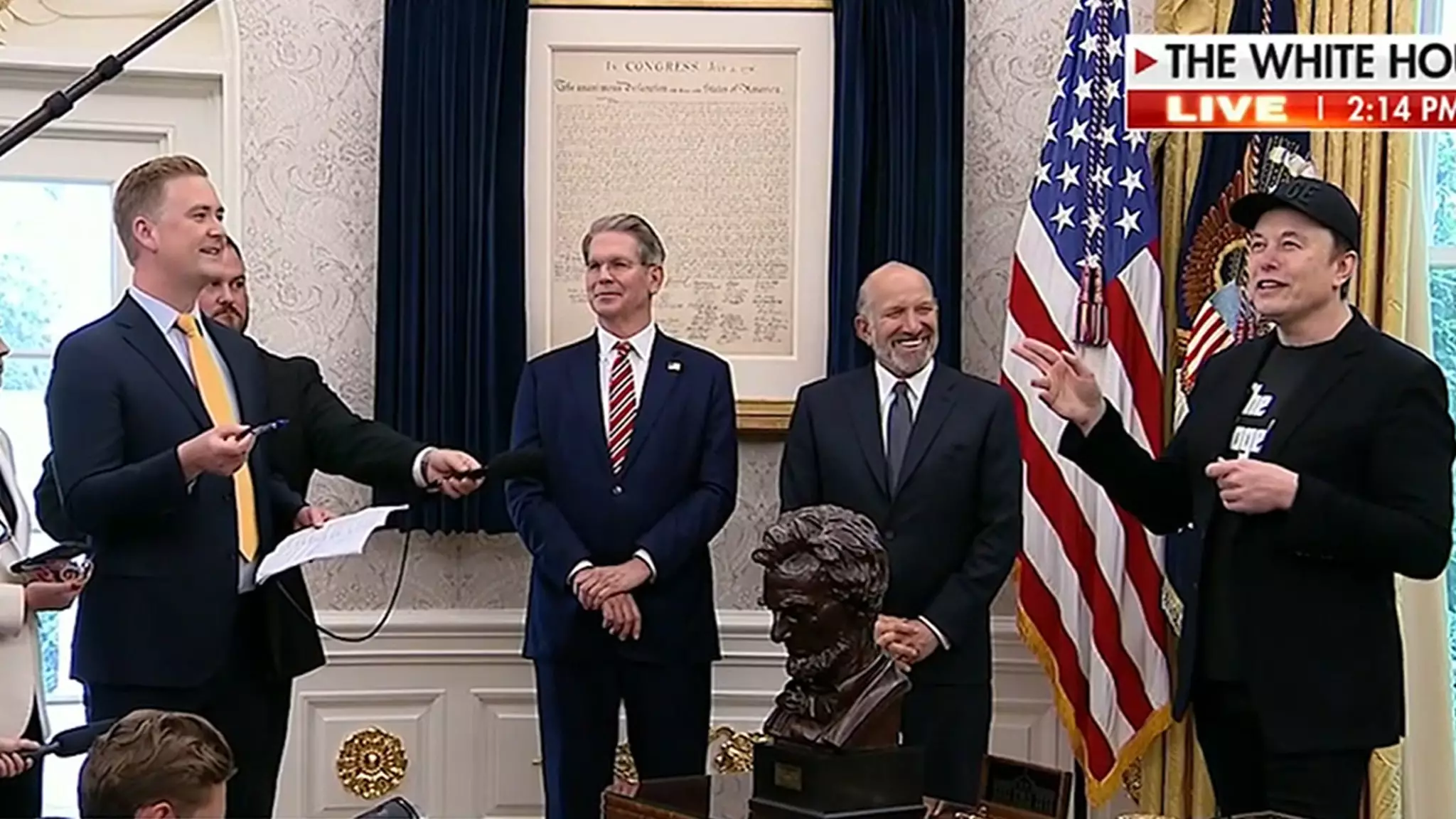In the tumultuous arena of modern media battles, few figures wield their influence as dramatically as Elon Musk. The CEO of Tesla and SpaceX continues to redefine public engagement, often mixed with controversy that dazzles and repels in equal measure. Recently, Musk openly challenged the credibility of The New York Times, suggesting its reporting was less than reputable. The specific context of his critique stemmed from a report that claimed he had been abusing drugs, highlighting a narrative that oscillates between fascination and concern regarding his personal choices and professional demeanor.
In a time when the truth often feels subject to interpretation, Musk’s dismissal of the Times was assertive yet emblematic of a broader discontent with mainstream media. Musk’s statements resonate with his dedicated following, a group that often sees him not just as a tech entrepreneur but as a champion of an anti-establishment ethos. This situation raises significant questions about the relationship between celebrities, particularly those in powerful positions, and the media that report on them.
Fact vs. Fiction: The Lawsuit Complexity
The conflict deepened when former President Donald Trump entered the conversation, filing a lawsuit against the Pulitzer Prize Board rather than The New York Times itself, as clarified by a Times spokesperson. The crux of Trump’s legal pursuit appears to be aimed at undermining the legitimacy of the journalism that garnered awards, fundamentally questioning the outcome of the illustrious Pulitzer recognition. This lawsuit underscores a disturbing trend where individuals in power seek to manipulate narratives to suit their ends, frequently utilizing the weapon of litigation against any unfavorable press.
What’s particularly telling is that while both Musk and Trump exhibit disdain for what they categorize as misleading media reporting, their actions paradoxically draw more attention to the very reports they wish to discredit. In Musk’s case, his critiques of the Times parallel larger societal sentiments towards journalism, policing its narratives by instilling doubt about the motives of reporters. This reflects a post-truth environment where questioning the credibility of established publications can significantly alter public perception.
The ‘Russiagate’ Conundrum
Musk’s comments not only reflect self-defense but almost mimic the language employed by Trump when discussing the “Russiagate” scandal. He connected the alleged failings of the Times reporting, particularly around the 2016 election interference by Russian entities, with broader claims of journalistic incompetence. The idea that these allegations could tarnish the integrity of Pulitzer Prize-winning journalism highlights how deeply intertwined personal grievances and public narratives can become. Musk identified the Times’ reporting on the Trump-Russia narrative as flawed, hinting that such a significant journalistic misfire warrants a reconsideration of awards given.
However, this line of argument fails to fully acknowledge how investigative journalism plays a crucial role in democracy. The actions of major publications like the Times, despite their imperfections, serve the sociopolitical purpose of accountability. Musk’s approach becomes a troubling precedent where subjective interpretations of journalistic fidelity might be weaponized by those in power, allowing criticism to morph into a traditional skirmish of reputations rather than a healthy discourse on sociopolitical reporting.
Impacts on Cultural Conversations
As Musk prepares to leave his governmental role, the broader implications of his statements loom large. His suggestion that individuals should disregard the Times signals a call that can lead to an echo chamber effect among his supporters. It can embolden similar dismissals of unwanted scrutiny from public figures across various sectors, creating a landscape where accountability is diminished.
This phenomenon poses challenges for responsible journalism, compelling writers and editors to navigate an increasingly hostile environment towards their work. Musk doesn’t merely reject the narrative presented; he reshapes the conversation in his favor, provoking followers who might discount the importance of corroborated reporting. What this means for the public’s understanding of truth is critical—it fosters an environment where alternative narratives can proliferate unchecked, leaving citizens vulnerable to misinformation.
Through the cycle of reaction and counter-reaction, Musk’s narrative against The New York Times becomes a microcosm of a larger struggle concerning media trust, the complexities of truth-telling, and the responsibilities borne by powerful individuals. Ultimately, it suggests a battleground where perception often reigns supreme over fact, and where the discourse surrounding truth continues to spiral in increasingly convoluted directions.

Leave a Reply